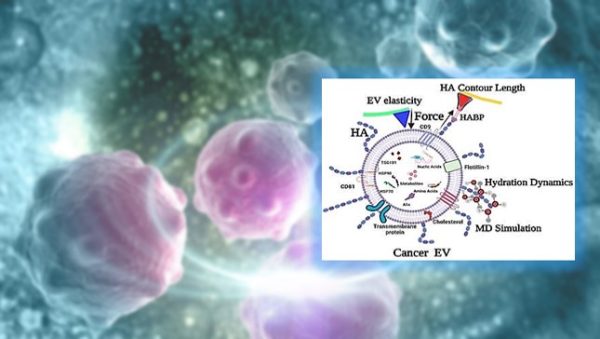
Sugar-coated pouches in body fluids can help detect cancer
New studies on cancer in past year has given us hope to find early easy detection, prevention and new treatments of various types of cancer. Nearly 12 big breakthroughs in cancer research happened during pandemic years. To name a few – In Spain scientists discovered a fat molecule that alters the cancer genome. A new way to deliver cancer drugs was invented by researchers in Netherland. Researchers I Spain also found how the cancer tumors in breast cancer prevent immune cells from destroying cancer cells. New clinical trails for prostrate cancer discovered by Argentinian scientists.
Recently research studies from Indian scientists showed sugar coated pouches in body fluids can help in detecting cancer- Healthy Life
Detection of the cancer microenvironment may soon become much easier with the help of a new molecular biosensor recently developed by a team of scientists.
Cancer cells secrete small pouches, namely extracellular vesicles (EV) covered with sugar molecules, Hyaluronan (HA), which has a direct link to tumor malignancy and is considered a potential biomarker for early diagnosis of colon cancer. These EVs are abundant in body fluids (blood, feces, etc.), and all types of cells secrete these EVs into the extracellular matrix. Cancer cells secrete at least two times more EVs into the body fluids than normal cells). Therefore, these EVs could be isolated non-invasively from a patient’s body for early cancer diagnosis.
It is known that the sugar molecule HA associated with these cancer EVs carries danger signals in tumour progression when it gets fragmented by hyaluronidases (Hyals) and reactive oxygen species in pathological conditions.
Dr. Tatini Rakshit laboratory, supported by Inspire faculty grant of the Department of Science and Technology (DST), at Shiv Nadar Institute of Eminence, Delhi, in collaboration with S. N. Bose National Centre for Basic Sciences (SNBNCBS), Kolkata, Saha Institute of Nuclear Physics, Kolkata and IIT Bhilai, Chatisgarh has unraveled the contour lengths of HA on a single cancer cell-derived EV surface.
Their study showed that a single cancer cell-derived EV is coated with very short chain HA molecules (contour length less than 500 nanometers) using single molecule techniques and elucidated that these short-chain HA-coated EVs are significantly more elastic than the normal cell-derived EVs. This intrinsic elasticity of HA-coated EVs in cancer helps them to withstand multiple external forces during extracellular transportation, uptake, excretion by cells, adhesion to cell surfaces, etc.
The study has been published very recently in the Journal of Physical Chemistry Letters. These findings affect how sugar-coated pouches increase the risk of cancer progression.
https://pib.gov.in/PressReleasePage.aspx?PRID=1861500
Publication link: https://pubs.acs.org/doi/full/10.1021/acs.jpclett.2c01629).
Author: HealthyLife | Posted on: September 27, 2022
« What Youngsters need to know about Monkeypox -Guidelines to stop spreading monkeypox Premature And Early Menopause Are Linked to Dementia In Women -Study »






















Write a comment